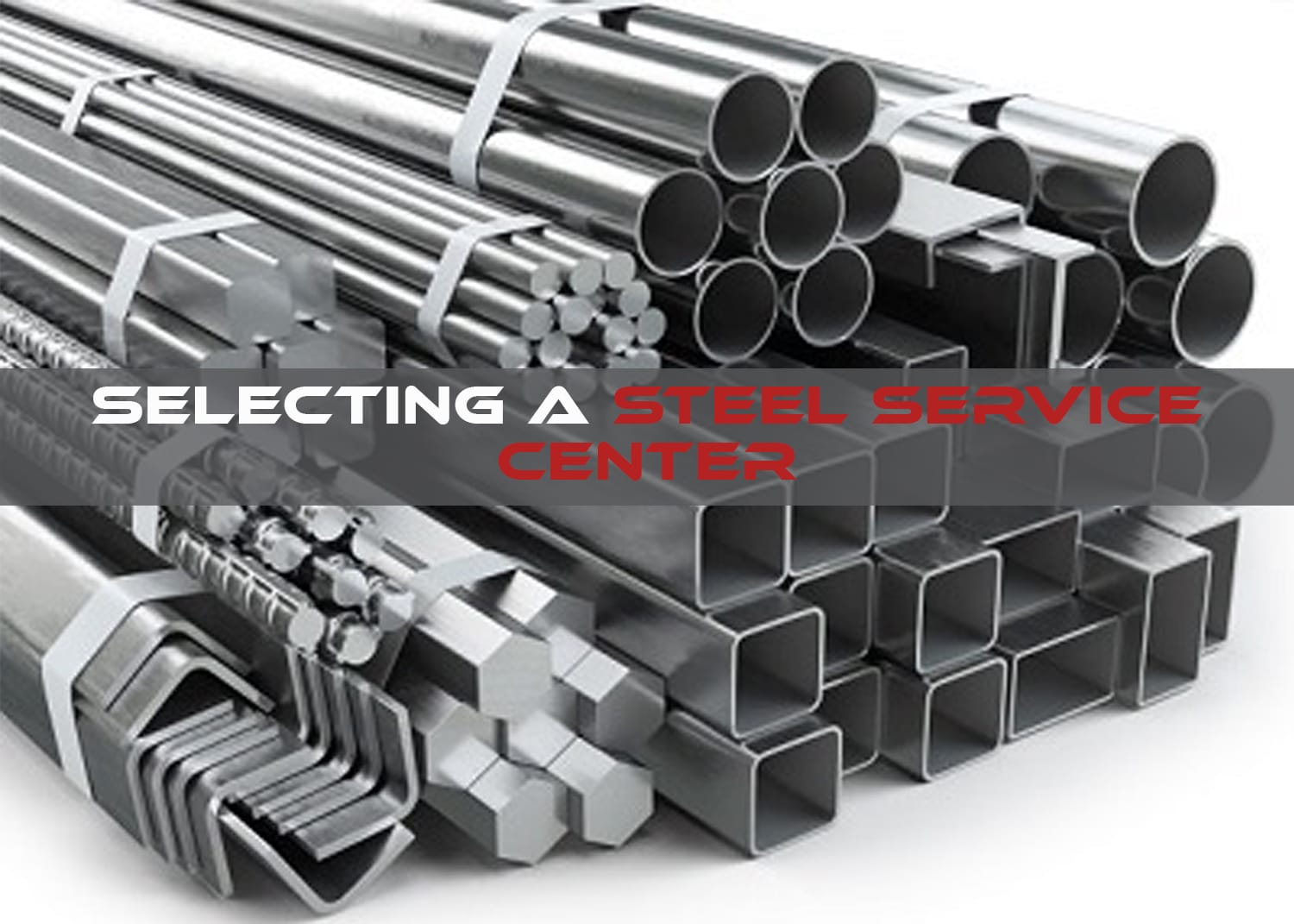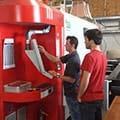Get Thee to the Ironmonger
If you lived in colonial America and wanted to procure a product made of steel, you would have likely called upon your local ironmonger to help you find what you needed. Ironmongers were shopkeepers who specialized in all things metal, such as nails, cookware, door handles, and garden tools.
As new formulas and processes for creating steel were developed in the 1700s and 1800s, its mass production became a reality. With steel becoming more readily available in the marketplace, some ironmongers evolved over time into the first wholesale metal supply facilities, what we know today as steel service centers.
While the large steel producers have dominated the market in North America for the last century, the rise of steel service centers has allowed smaller factories and fabrication businesses to be able to purchase metal for their projects in reasonable quantities, rather than the large minimums mandated by the producers. Steel service centers serve as wholesalers that often process the bulk steel they acquire from the mills into various blanks, plates, beams, tubes, wires, and other shapes of different sizes that can be used as workpieces in later fabrication operations.
Nearly one-third of industrial steel products today are processed and sold through steel service centers, along with almost half of the specialty steel products that are on the market.
The Services of the Service Centers
Steel service centers can function in different ways. Some won’t even stock metal but act solely as brokers between the mills and the end users, arranging direct shipments for the product. Others will serve as buying brokers for their clientele, ordering metal on their behalf, storing it, then supplying it to them as needed.
Most steel service centers used by fabrication shops will be distributors that purchase and stock commercial quality metal in different grades and tolerances. Some will also cut, form, and otherwise further process the metal prior to selling it to the end user.
While there are increased costs in using a middleman like a steel service center, fabricators and factories benefit in several ways by not trying to deal directly with a mill:
- The ability to order small quantities.
- A greater variety in the choice of metals.
- Orders can be fulfilled faster and to precise specifications.
Steel service centers will usually offer the entire range of steel types, including carbon steel, alloy steel, stainless steel, and tool steel. Highly processed commercial steels will likely be available, such as galvanized steel, spring steel, and aluminum-plated steel. Service centers will often also supply other metals such as aluminum, copper alloys, bronze alloys, and brass alloys. Their inventory may include processed metal such as plates and sheets, pipes and tubing, hot-rolled and cold-rolled bar, and I-beams and other structural shapes.
To help end users streamline their fabrication or manufacturing, steel service centers may offer various metal processing and finishing operations, including:
- Cambering
- Coil Processing
- Cutting to Length
- Drilling and Tapping
- Folding
- Forming and Shaping
- Milling
- Marking and Scribing
- Plate Edge Preparation (Beveling, Chamfering)
- Polishing
- Punching
- Surface Treating
Some steel service centers may specialize in some way, such as in recycling scrap metals, while others might focus on a specific industry, such as supplying oil drilling operations.
Finding the Best Steel Service Center for Your Needs
There are likely several steel supply vendors in your area. Check out as many of them as possible before selecting one to primarily work with. Even though you will likely want to establish a good relationship with one that can furnish most of your needs, be sure to shop around when you can for the best deals on materials for specific projects.
Key elements of an ideal steel service center include:
- Inventory. Do they stock a wide range of types and classes of metal? Looking over your past projects, do they carry all the materials that you might normally need?
- Price. How do they compare with other suppliers in the area on types of metal you ordinarily order? Do they offer specials, promotions, or other discounts that would be beneficial to you? Do their credit services meet the needs of your financial situation?
- Added Value. Do they offer metal processing? What types? Can they significantly reduce your fabrication time by providing these additional services for you?
- Delivery. Can they supply you with the materials you need when you need them? Do they stock enough of your most-ordered metals to always have plenty on hand for any normal job you might encounter? Can they transport material to your shop or worksite in a fast and efficient manner?
- Technology. Are they using the latest technology for metal processing, material handling, inventory management, and order tracking?
- Service. It’s in their name, after all, so do they serve you in a way that makes you feel like a valued customer? Do they point out alternatives, or otherwise provide suggestions to assist you in your projects? Do they follow up with you to make sure the material worked well in your applications?
You should also get recommendations from others in your specific industry and market and ask about the pros and cons of service centers that they’ve worked with.
Finding a steel service center that is suited for your needs can greatly improve your profitability, making it worth paying any markup in price over what a steel mill would directly charge you. Having a provider who watches for changes in the market, buys metal in bulk at a discount, warehouses it so you don’t have to worry about storage, and can provide it to you in short notice eliminates unnecessary stress from your life. Any additional processing services they offer can also reduce labor on the part of your team and further increase your productivity.







